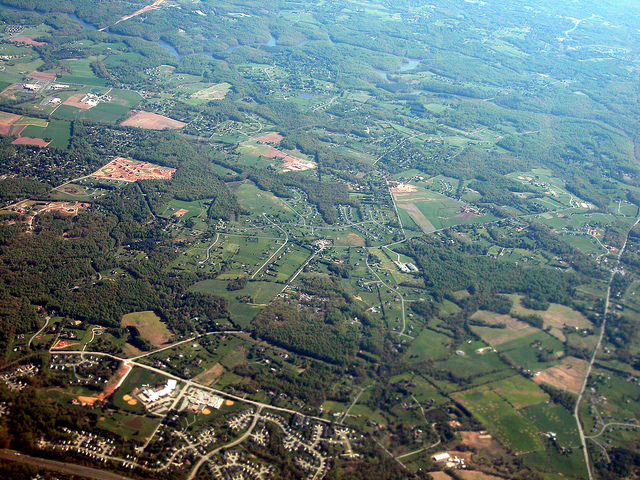In strictly economic terms, sprawl is inefficient. Spread people out, and it takes them longer to drive where they need to go, and it costs them more in gas money to get there. Disperse a few people over a lot of land, and that land is used inefficiently, too. Then give those people roads and sewers — you’d need a lot more of both to serve 20 households living over a square mile than 20 on the same block. And that’s to say nothing of the costs of fire and police service when people live far apart.
These costs add up, in both private budgets and public ones. It’s a messy thought exercise to contemplate tallying them, akin to trying to calculate the productivity America wastes by sitting in traffic every year. How do you measure, for instance, the saved health care costs in a community where many people walk for transportation every day? How do you quantify the pleasure gained from a big yard that offsets any of these costs?
So take this number as more of a starting point than a final answer: A new analysis authored by Todd Litman at the Victoria Transport Policy Institute concludes that sprawl costs the U.S. economy more than $1 trillion every year…
Read more from The Washington Post

